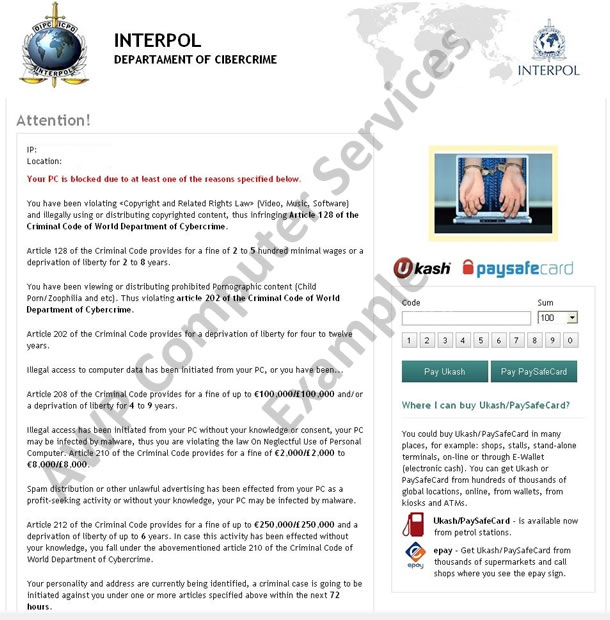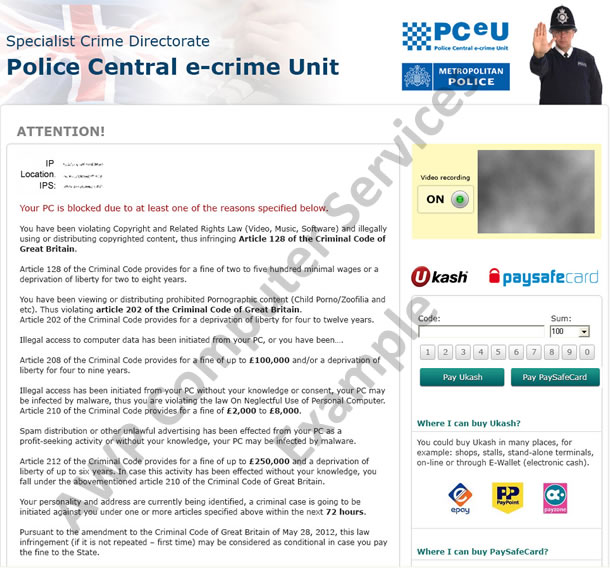Anti-Virus Solutions
Anti-Virus Solutions
If your computer falls victim of a Virus Infection, AWP Computer Services can provide the Fix! Please call or contact us to get immediate help with Malware removal, Spyware removal & Virus removal.
Don’t just think about the problems of a computer virus after your PC has become infected. It makes sense to ensure your valuable IT equipment is always protected. Please don’t hesitate to call or contact us and ensure that you are getting the best advice about your important Malware protection, Spyware protection & Virus protection.
More often than not, new PCs and laptop computers are supplied to you with anti-virus software already installed. It’s quite usual for a free subscription, free trial or time limited version of popular anti-virus software to be given to you when you buy your new computer. This would normally be an anti-virus solution from McAfee, Norton or your Internet Service (Broadband) provider – for example Virgin Media Security. However, when the subscription ends it can you leave you with a predicament. Renewing the subscription for the pre-installed software is not your only option.
PC Virus Infection Symptoms
Your computer may be infected by a virus if you experience one, if not all, of the following symptoms:
- Your computer’s performance is affected and your programs run slowly
- An unfamiliar program informing you of a problem
- Unwanted adverts/ pop-ups
- Desktop PC or Laptop is has been locked by the Police or FBI
- Your internet browser (Internet Explorer, Firefox, Chrome, etc.) start page changes
- Your firewall reports it may have been turned off
- Strange or new icons appear on your desktop
If you believe your computer may be infected by a computer virus please give us a call or contact us to arrange a visit. We will let you know what the problem is in plain English, so that you can avoid the situation where possible in the future.
Computer virus infections can vary from the blatantly obvious screen locking of a Police or FBI warning page to being deeply hidden and being almost impossible to detect. The latter is only evident by a computer’s slow performance or by virtue of Microsoft Windows utilities, such as the ‘Task Manager’ being inaccessible. Please see below for examples of some typical virus infections.
All PC virus infection problems will be taken care of with the utmost discretion.
Please see our prices page for the full details of the costs.
Anti-Virus software solutions
Malware protection
Malware is software that is intended to damage or disable computers and computer systems. Malware is short for malicious software and is the name for computer software that is used to disrupt your computer’s operation, gather sensitive information, or gain access to your private computer systems. Malware can appear in the form of code, scripts, active content, and other software. The word ‘Malware’ is a general term used to refer to a variety of forms of hostile or intrusive software.
Malware includes computer viruses, ransomware, worms, trojan horses, rootkits, keyloggers, dialers, spyware, adware, malicious BHOs (Browser Helper Objects), rogue security software and other malicious programs; the majority of active malware threats are usually worms or trojans rather than viruses.
It’s very important to be vigilant when installing new programs on your computer, particularly when you have downloaded it from the Internet. Some malware is disguised as genuine software, and may come from an official company website in the form of a useful or attractive program, which has the harmful malware embedded in it along with additional tracking software that gathers marketing statistics.
Spyware protection
Spyware is software that aids in gathering information about a person (or company) without their knowledge and can send such information to another entity without the user’s consent, or will assert control over a computer without the user’s knowledge.
“Spyware” is generally grouped into four types: system monitors, trojans, adware, and tracking cookies. Spyware is mainly used for such purposes as; tracking and storing internet users’ movements on the web; serving up pop-up ads to internet users.
Spyware’s presence is typically hidden from the user and can be difficult to detect. While the term spyware suggests software that monitors a user’s computing, the functions of spyware can extend beyond simple monitoring. Spyware can collect almost any type of data, including personal information like Internet surfing habits, user logins, and bank or credit account information. Spyware can also interfere with user control of a computer by installing additional software or redirecting Web browsers. Some spyware can change computer settings, which can result in slow Internet connection speeds, un-authorized changes in browser settings, or changes to software settings.
Spyware can be included along with genuine software, and often comes from a malicious web site. From this point of view it’s very important to be very cautious about downloading new software from the Internet, particularly from an unknown source.
Virus protection
A computer virus is a type of malware that, when executed, replicates by inserting copies of itself (sometimes in a modified form) into other computer programs, data files, or the boot sector of the computer’s hard disk drive. When a computer virus succeeds in this type of replication, the affected areas are then said to be “infected”.
Computer viruses often perform some type of harmful activity on the infected host, such as stealing hard disk space or CPU time, accessing private information, corrupting data, displaying political or humorous messages on the user’s screen, spamming their contacts, or logging their keystrokes. Virus writers exploit security vulnerabilities to gain access to their hosts’ computing resources. The vast majority of viruses target systems running Microsoft Windows, employing a variety of mechanisms to infect new hosts, and frequently use very complex anti-detection and stealth strategies to evade anti-virus software.
Many free, open-source anti-virus tools have been developed, and a multi-billion pound industry of anti-virus software vendors has been created, selling virus protection to Windows users.
Unfortunately, no currently existing anti-virus software is able to catch all computer viruses (especially new ones); computer security researchers are actively searching for new ways to enable anti-virus solutions to more effectively detect emerging viruses, before they have already become widely distributed.
AWP Computer Services Virus Removal
AWP Computer Services PC Fix can scan and remove all virus, spyware and malware infections. We will give you advise and guidance on measures you can take to prevent further infections in the future. Please give us a call or contact us through the web site to discuss in more detail.
Malware removal, Spyware removal and Virus removal
Dependant on the severity of the computer virus infection, we will take a number of steps to remove the problem. Typically this will involve running the PC in Windows ‘Safe Mode’ to see what is happening on start-up and what programs can be removed manually, followed by using Anti-Malware scanning software, such as Malwarebytes.
The process generally also involves running a Second Opinion Malware Scanner, such as SurfRight’s HitmanPro 3 to be totally sure the infection has been removed.
More problematic cases may involve using the Windows System Recovery utility to take the computer back to a restore point made prior to the virus infection. This can be done safely without you losing and personal files and data (documents, music, pictures, etc.), however, any recently installed legitimate programs will be lost.
In some cases the only way to get the computer back to ‘good health’, and performing the way it should be, is to delete the programs and files (after, hopefully, being able to back up your personal data) and completely re-installing the Windows Operating System.
Please give us a call or contact us through the web site to discuss the process in more detail, if you are unsure.
Typical PC Virus Infections
Ukash Virus
If your computer has been locked and you are seeing a notification from the police, Interpol, FBI or similar asking you to pay a fine via Ukash, MoneyPak or PaySafeCard, then your computer has been infected by the Ukash Virus.
One of the newest forms of attack used by cyber criminals, is a piece of malware called Trojan Reveton, which will display a bogus notification that pretends to be from your local police department, and states that your computer has been blocked due to it being involved with the distribution of pornographic material, SPAM and copyrighted content.
This form of malware will lock you out of your computer and applications, so whenever you’ll try to log on into your Windows operating system or Safe Mode with Networking, it will display instead a lock screen asking you to pay a non-existing fine in the form of a Ukash or PaySafeCard code.
If your computer is infected with Ukash virus, you’ll see a notification from your local police department.
Furthermore, to make its alert seem more authentic, this virus also has the ability to access your installed webcam so that the bogus Ukash notification shows what is happening in the room.
The Ukash Ransom is a scam and you should ignore any alert that this malicious software might generate and remove this trojan ransomware from your computer. Under no circumstance should you send any money to this cyber criminals,as this could lead to identity theft,and if you have, you should request a refund from Ukash stating that you are the victim of a scam and computer virus.
If your computer is infected with Ukash virus, or any other form of malicious software, please give us a call or contact us through the web site to discuss the problem.

Places we work
Based in Walton le Dale, AWP Computer Services PC Fix can provide PC and Laptop Repair & Upgrade services for both Home based and Business computer users in the following areas:
Abbey Village, Adlington, Bamber Bridge, Belmont, Bretherton, Brindle, Broughton, Buckshaw Village, Burscough, Chorley, Clayton le Woods, Clifton, Cottam, Croston, Darwen, Eccleston, Euxton, Freckleton, Fulwood, Garstang, Goosnargh, Grimsargh, Heapy, Higher Walton, Hoghton, Hutton, Kirkham, Leyland, Longridge, Longton, Lostock Hall, Much Hoole, New Longton, Penwortham, Preston, Ribchester, Rufford, Salmesbury, South Ribble, Tarleton, Walton le Dale, Warton, Whittle le Woods & Withnall.


